RegTech Insight Knowledge Hub

KYC / AML
In a nutshell: Know Your Customer (KYC) is a process to which financial institutions must adhere in order to comply with global Anti-Money Laundering (AML) regulations. It requires the institution to verify the identity of its clients and to obtain detailed due diligence information in order to assess the potential risk of illegal activity.
Read on in our Knowledge Hub ‘Everything you need to know’ section to understand the full details of what KYC and AML is all about, who it impacts, the key requirements, the technical and data challenges it presents, and the outlook.
You can also take a look at all the latest content we have related to KYC and AML. And you can see a listing of key vendors delivering solutions to this regulatory challenge.
Our Knowledge Hub delivers everything you need to know about KYC and AML, with a full overview, key resources, and a list of solutions providers.
Key resources
Blogs

ThetaRay Extends Agentic AI into AML Investigations with Ray
As regulatory expectations around anti-money-laundering (AML) effectiveness continue to rise, many financial institutions are finding that the greatest operational pressure now sits in investigations rather than detection. While transaction monitoring models have advanced, the downstream work of reviewing alerts, assembling evidence and documenting decisions remains labour-intensive and difficult to standardise. ThetaRay is addressing this challenge…
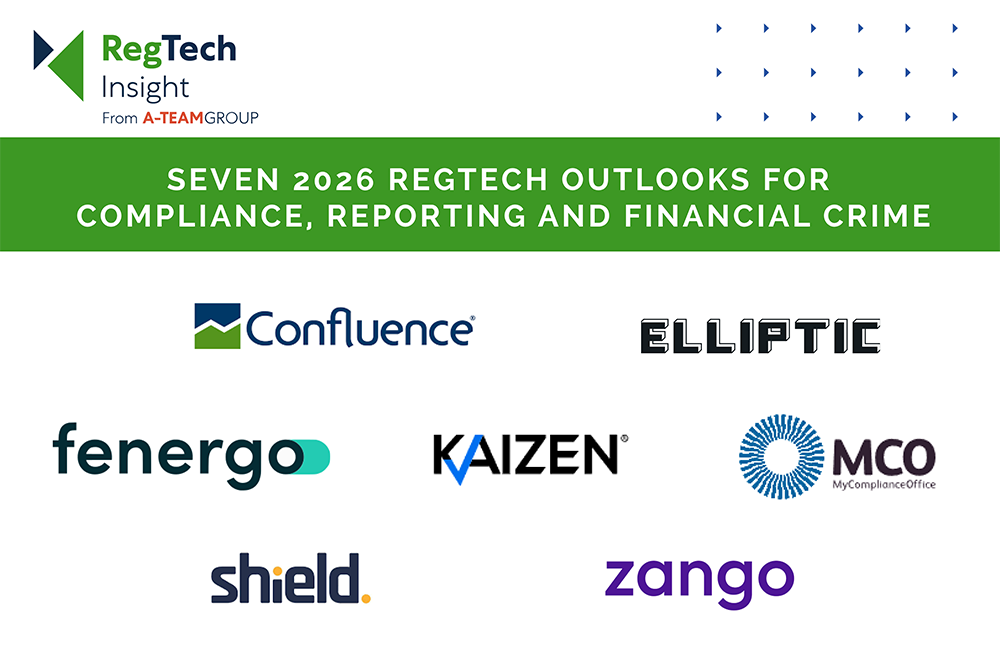
Seven 2026 RegTech Outlooks for Compliance, Reporting and Financial Crime
As 2026 gets underway, RegTechs are positioning for a shift in regulatory emphasis from refits, rewrites and attestations to demonstrable evidence. Across the jurisdictions supervisors are shifting from consultation and rulemaking into validation and testing whether firms have operationalised reforms through governance, high-quality data, defensible controls and credible evidence. The seven RegTechs that follow have…

What an Actimize Sale Might Mean for Surveillance and FinCrime Technology
When news emerged that NICE is preparing to sell its Actimize division – long regarded as one of the most established full-stack platforms for financial crime, fraud, and surveillance – the immediate headlines focused on valuation. With reports suggesting a price in the range of US$1.5–2 billion, the deal would be one of the RegTech…
Load more
White papers
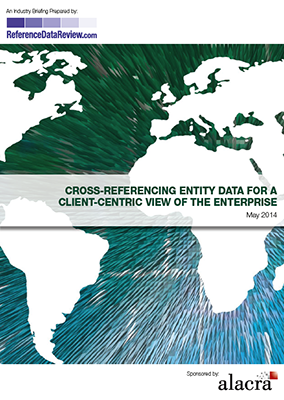
Have you figured out a single view of customer data yet?
Are you feeling the pressure from regulators to sort out your entity data but are frustrated knowing that the promised LEI solution is far from ready? What can you do in the meantime? Some financial institutions are meeting the regulatory requirements by establishing a single client view by cross-referencing data sources to help them achieve their entity data management…
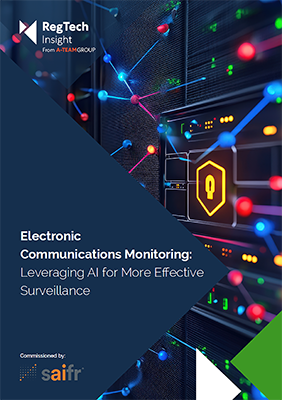
Electronic Communications Monitoring: Leveraging AI for More Effective Surveillance
The proliferation of electronic communications channels available to financial professionals and their clients has created a headache for compliance teams charged with mitigating against market abuse, insider trading and other illegal activities. In an era of heighted regulatory scrutiny, compliance teams are finding it challenging to put in place the appropriate systems and processes, particularly…
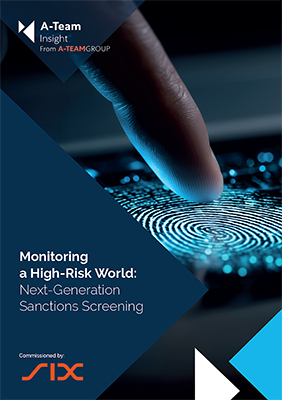
Monitoring a High-Risk World: Next-Generation Sanctions Screening
Sanctions remain a critical tool in international relations, influencing global finance, politics and security. In the past five years, global economic and financial sanctions have intensified amid rising geopolitical uncertainty, creating a complex landscape for financial institutions worldwide, the report states. The risk that institutions can inadvertently engage with sanctioned securities has never been higher,…
Load more
Webinars

Recorded Webinar: Detecting and preventing market abuse
Market abuse – unlawful disclosure of inside information, insider trading, circular trading, “pump and dump” schemes, etc. – poses significant threats to the integrity of capital markets. In 2024, global trading house Trafigura agreed to pay a $55 million fine to the U.S. Commodity Futures Trading Commission (CFTC) for trading with non-public information, manipulating a…

Recorded Webinar: Effective due diligence, screening and monitoring to mitigate financial crime risk
Managing financial crime risk requires a comprehensive approach to due diligence, screening, and continuous monitoring. Financial institutions face increasing regulatory scrutiny and staying compliant in today’s dynamic environment requires advanced technologies. Failure to comply is resulting in severe enforcement penalties. This webinar will explore practical strategies and tools for mitigating financial crime risk, focusing on…

Recorded Webinar: Best practices for compliance with EU Market Abuse Regulation
EU Market Abuse Regulation (MAR) came into force in July 2016, rescinding the previous Market Abuse Directive and replacing it with a significantly extended scope of regulatory obligations. Eight years later, and amid constant change in capital markets regulation, technology and culture, financial institutions continue to struggle to stay on the right side of the…
Load more
Guides
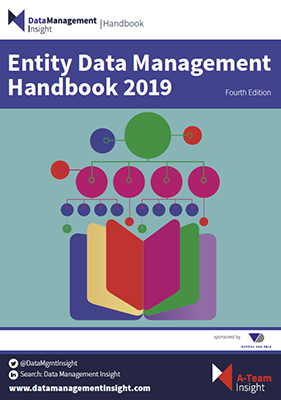
Entity Data Management Handbook – Fourth Edition
Welcome to the fourth edition of A-Team Group’s Entity Data Management Handbook sponsored by entity data specialist Bureau van Dijk, a Moody’s Analytics company. As entity data takes a central role in business strategies dedicated to making the customer experience markedly better, this handbook delves into the detail of everything you need to do to…
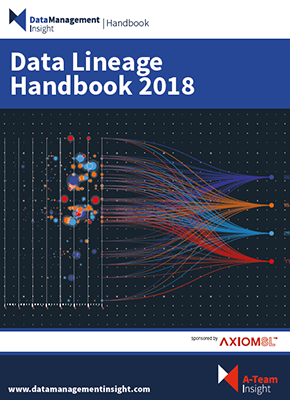
Data Lineage Handbook
Data lineage has become a critical concern for data managers in capital markets as it is key to both regulatory compliance and business opportunity. The regulatory requirement for data lineage kicked in with BCBS 239 in 2016 and has since been extended to many other regulations that oblige firms to provide transparency and a data…
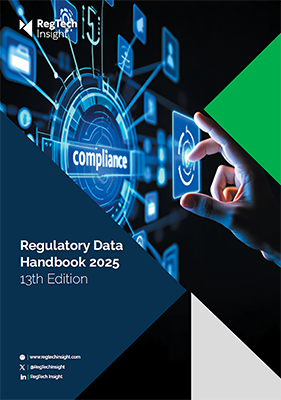
Regulatory Data Handbook 2025 – Thirteenth Edition
Welcome to the thirteenth edition of A-Team Group’s Regulatory Data Handbook, a unique and practical guide to capital markets regulation, regulatory change, and the data and data management requirements of compliance across Europe, the UK, US and Asia-Pacific. This year’s edition lands at a moment of accelerating regulatory divergence and intensifying data focused supervision. Inside,…
Load more
Everything you need to know about: KYC / AML & Financial Crime
What is KYC/AML?
KYC regulations came into force following the creation of the Financial Action Task Force (FATF) in 1989. An intergovernmental organisation with 37 members, the FATF issued 40 recommendations to fight money laundering in the year of its launch. These were subsequently revised in 1996, expanded to include terrorist financing in 2001, and revised and tightened again in 2003 and in 2012. These recommendations require member states to:
- Implement relevant international conventions;
- Criminalise money laundering and enable authorities to confiscate the proceeds of money laundering;
- Implement KYC procedures such as customer due diligence, identity verification, record keeping and suspicious transaction reporting;
- Establish a financial intelligence unittohandle and process suspicious transaction reports; and
- Cooperate with international money laundering investigations and prosecutions.
Europe
In Europe, a common framework was introduced in May 2015 through the 4thAnti-Money Laundering Directive (AMLD4), the Directive (EU) 2015/849of the European Parliament and Council, which requires each member state to take appropriate steps to meet the AML requirements including the creation of a national body or regulatory authority to coordinate the national response to AML enforcement. KYC forms part of this AML legislation, and encompasses customer identification, acceptance, transaction monitoring and risk management. This can include the collection and analysis of identity documentation, the cross-checking of customer identities against global known-party lists, and the monitoring of transactions and account activity against expected behaviour.
?The 5th Anti-Money Laundering Directive, which amends ALMD4, entered into force on July 9, 2018. Member States must transpose this Directive by January 10, 2020. The new Directive, coming so soon after the earlier regulation, highlights the EU’s commitment to combating money laundering, particularly in response to a number of recent scandals including the late 2015 leaking of the Panama Papers. Rather than replace the previous directive, the new rules amend certain aspects: including the regulation of virtual currencies, information on beneficial owners, the use of prepaid cards, powers of financial intelligence units (FIUs) and supervisors, and due diligence for high risk countries.
The EU is also currently discussing the possibility of a Directive on countering money laundering by criminal law, which is expected to come into force shortly.
UK
The primary AML legislation in the UK is included under the Proceeds of Crime Act 2002 (which requires businesses to report any suspicious activities to the authorities), and the Money Laundering Regulations Act 2007. The EU AMLD4 was transposed into law through the Money Laundering, Terrorist Financing and Transfer of Funds (Information on the Payer) Regulations 2017, which came into force on June 26, 2017 and repealed/replaced the 2007 Act.
In May 2018, the UK Government passed the Sanctions & Anti-Money Laundering Bill, which lays out the UK’s intended approach to AML regulation following the UK’s departure from the EU in 2019. The bill also requires overseas British territories to establish public registers of the beneficial ownership of firms in their jurisdictions by 2020, and as such is being legally challenged by local governments in offshore tax havens including the Cayman Islands and the British Virgin Islands, who claim that the legislation violates their constitutional sovereignty.
US
The US criminalised money laundering in 1986 under the Money Laundering Control Act, which prohibited individuals from making financial transactions using the proceeds of crime. In 1998 the Money Laundering and Financial Crimes Strategy Act was introduced, spurring the creation of the National Money Laundering Strategy and the High Intensity Money Laundering and Related Financial Crime Area (HIFCA) Task Forces to coordinate enforcement at Federal, state and local level.
Under the USA Patriot Act of 2001, the US Treasury made KYC mandatory for all US banks. Title III of the Act requires a standardised customer identification programme (CIP) and appropriate customer due diligence (CDD) policies, procedures and controls.
Who are the regulators?
KYC and AML laws can differ by jurisdiction, but most jurisdictions operating within the global financial market have enacted some form of legislation to ensure compliance. On an international level, FATF publishes a blacklist of countries that do not cooperate with the guidelines or which represent a high AML risk. While this blacklist carries no authority under international law, it can bring significant international financial pressure to bear on non-cooperative markets and acts as a strong deterrent.
Europe
The European Banking Authority (EBA) is in charge of the integrity, transparency and orderly functioning of the European financial markets. As part of this, it is the EBA’s responsibility to ensure that competent authorities and credit and financial institutions within its scope apply the provisions of European Anti-Money Laundering and Countering the Financing of Terrorism (AML/CFT) legislation effectively and consistently. It does this through the support of competent AML/CFT authorities within EU member states, and through a Joint Committee with the European Securities and Markets Authority (ESMA) and the European Insurance and Occupational Pensions Authority (EIOPA) to deliver its mandates under Directive (EU) 2015/849.
UK
The Financial Conduct Authority (FCA) is the supervisory authority for all FCA-authorised entities including credit and financial institutions, money service businesses, trust or company service providers, electronic money institutions, auction platforms and recognised investment exchanges. Professional bodies such as the Law Society or the Association of Chartered Certified Accountants act as the supervisors for their own members. HMRC acts a the supervisory body for money service businesses not supervised by the FCA, along with high value dealers, trust or company service providers not regulated by the FCA or a professional body, accountancy service providers not regulated by a professional body, estate agency businesses, bill payment service providers not supervised by the FCAand telecommunications, digital and IT payment service providers not supervised by the FCA.
Professional guidance, approved by the UK Treasury, is provided by a number of industry groups including the Joint Money Laundering Steering Group, the Law Society and the Consultative Committee of Accountancy Bodies (CCAB).
The UK in January 2018 established theOffice for Professional Body Anti-Money Laundering Supervision (OPBAS), a new regulator set up by the government to strengthen the anti-money laundering (AML) supervisory regime and ensure the professional body AML supervisors provide consistently high standards of AML supervision.OPBAS is housed within the FCA and facilitates collaboration and information sharing between the professional body AML supervisors, statutory supervisors, and law enforcement agencies. OPBAS has published a sourcebook for professional body AML supervisors about how they can meet their obligations in relation to AML supervision.
US
The Financial Crimes Enforcement Network (FinCEN), a bureau of the US Treasury, collects and analyses information on financial transactions to combat financial crime and money laundering, and serves as the US Financial Intelligence Unit. Its mission is to: “Safeguard the financial system from illicit use, combat money laundering and promote national security.” FinCEN manages and coordinates the other regulators for US financial institutions with regards to KYC: including the US Treasury, the Federal Reserve Board of Governors, the Federal Deposit Insurance Corporation (FDIC), the Office of the Comptroller of the Currency of the US Treasury, the SEC, theIRS and the National Credit Union Administration.
The Financial Industry Regulatory Authority (FINRA), a private corporation that acts as a self-regulatory organization, in 2012 issued the Financial Industry Regulatory Authority (FINRA) Rule 2090 (Know Your Customer) and FINRA Rule 2111 (Suitability) to assist both broker-dealers and customers to meet KYC/AML regulatory requirements.
Who needs to know?
Any firm providing financial services to customers, or any firm in the UK that is regulated by the FCA, by a professional body or falls under the seven HMRC-regulated categories (as above) must comply with KYC/AML regulation.
Related job titles include:
- Auditor
- Money Laundering Reporting Officer
- Head of Financial Crime
- Financial Crime Manager
- Financial Crime Officer
- Financial Crime Analyst
- Head of Regulatory Control
- Compliance Officer
- AML Officer
- Head of Client Onboarding
- Client Onboarding Specialist
- Head of KYC
- Financial Investigator
What are the key requirements?
There are a number of key steps firms must take in order to satisfactorily comply with KYC/AML requirements.
- Under Regulation 18 of the UK Money Laundering Regulations 2017, firms must conduct a written risk assessment to identify and evaluate the risk of money laundering and terrorist financing they face.
- Firms must implement the appropriate policies, procedures, controls and internal processes to address AML risks and meet regulatory requirements. These must be proportionate to the size and nature of the business, approved by senior management, and communicated internally. They must be regularly reviewed and updated, and they must cover AML controls; customer due diligence; reporting and record-keeping; monitoring and compliance; internal communication; identification of suspicious transactions; measures to mitigate AML risk following the adoption of new technology; and the making of required disclosures under Part 3 of the Terrorism Act 2000 and Part 7 of the Proceeds of Crime Act 2002. These must be applied across the group, including any and all subsidiaries outside the UK.
- Under the UK’s Money Laundering Regulations 2007, all businesses within the regulated financial services sector are required to appoint a Money Laundering Reporting Officer (MLRO). In addition, firms must provide appropriate KYC/AML training to staff. Firms are also recommended to establish an independent audit function to monitor internal compliance.
- The UK’s new 2017 regulations introduced new customer due diligence (CDD) requirements that must be applied when financial institutions establish a new business relationship or carry out an “occasional transaction” with a client. CDD must also be carried out “at appropriate times” on existing customers on a “risk sensitive” basis. CDD involves identifying and verifying the identity of a customer, and obtaining and assessing information on the purpose and intended nature of the business relationship or transaction (a new requirement not included in he earlier 2007 regulation). Depending on the circumstances, Simplified Due Diligence (SDD) or Enhanced Due Diligence (EDD) may be appropriate – guidance on this is provided in the Joint Guidelines issued by the European Supervisory Authorities under AMLD4. Circumstances in which EDD measures must be imposed include any transaction or business relationship involving a person established in a ‘high risk third country’, any transaction or business relationship involving a ‘politically exposed person’ (PEP) or a family member or known associate of a PEP and any other situation that presents a higher risk of money laundering or terrorist financing.
What technological challenges does it represent?
Compliance with KYC/AML requirements is of paramount importance for banks and financial institutions, and the penalties can be severe. In December 2017 the US Office of the Comptroller of the Currency fined Citibank US$70 million for failing to address concerns around AML first flagged in 2012, while in February 2018 US Bancorp was fined US$613 million in state and Federal penalties for a faulty AML program. In the UK, the FCA fined Deutsche Bank £163 million in 2017, its largest ever AML fine, based on the bank’s failure to maintain an adequate AML framework between 2012-15 – most notably in the area of client onboarding. In December 2017, the FCA warned Commerzbank specifically around a deficiency in KYC controls, and insisted on immediate action including a freeze on certain customer accounts until screening processes were improved. In February 2018, the FCA fined Canara Bank £896,100 and imposed a restriction preventing it from accepting deposits from new customers for 147 days, due to a failure to maintain adequate AML controls.
Yet compliance with KYC/AML requirements is not always easy or straightforward, especially for firms operating across multiple jurisdictions. Developing a standardised approach to managing regulatory change and facilitating KYC/AML requirements in tandem with overlapping regulatory requirements can present a substantial challenge, while firms must also balance KYC requirements with the new mandates under MiFID II and GDPR.
A lack of standardisation, data quality and data integrity issues, a legacy focus on traditional ‘rules-based’ methodology based on transaction filtering, and an over-reliance on paper-based verification are also challenges; while cost is another key issue – many financial firms have made enormous investments in AML compliance programmes that employ large teams, implement manual controls and utilise unwieldy point-in-time systems.
What solutions can be used?
Meeting KYC requirements can be expensive, time-consuming and labour-intensive – but done correctly and with a forward-looking strategy, an integrated KYC model can help firms to save time and money.
Client onboarding and client lifecycle management are the primary technological solutions for KYC compliance. This requires the construction of an efficient data model able to handle complex capital market relationships, coordinate a large number of activities, collect and store the correct client information, ensure ongoing policy adherence and provide transparency and accountability. Integrated platforms enable financial institutions to onboard new clients or new products efficiently in compliance with a broad range of regulatory obligations and supporting best practice.
With competing demands on data collection and resources, and with increasingly overlapping regulations across jurisdiction from global AML and KYC regulations to the growing number of tax (FATCA, CRS, UK CDOT), global entity classification and OTC derivatives-based regulations (such as Dodd-Frank, EMIR and Canadian and APAC derivative rules), as well as market reform rules (MiFID II),implementing a bank-wide source of consolidated data for due diligence can also help firms to use their customer lifecycle management technology from both the front and back office to optimise data, and onboard clients more quickly. A KYC utility is a central repository that collects, qualifies and stores KYC documents and related data, creating a synergy effect through the mutualisation of documents, data and KYC step.
Distributed ledger technology is helping to create new KYC solutions by allowing financial instiutions and regulatory agencies to communicate with each other in real time on a highly transparent basis. With current KYC processes lengthy and expensive, a shared ledger can allow this process to be monitored and adjusted more efficiently on an enterprise-wide basis, with information on client activity available in real time to all participants on the network, thus reducing overlap. Because end-to-end tracing and tracking of transaction and client activity is possible on blockchain, the identification and reporting of fraud would be improved, and the entire KYC process would become more efficient.
In addition, cryptographic/alternative verification holds the possibility of reducing/removing the need for paper/physical documentation and instead allowing the consolidation of sensitive client data onto a single network, accessible only by trusted sources.
Other innovative solutions such as biometrics, video KYC, data analystics, machine learning and AI are also being applied in this area to improve solutions.
However, the European Supervisory Authorities, in a January 2018 document entitled ‘Opinion on the use of Innovative Solutions by Credit and Financial Institutions in the CDD Process’, warned that while CDD “offers considerable scope for financial innovation that can improve the effectiveness and efficiency of AML/ CFT controls” there is also a risk that “innovation in this field, if ill understood or badly applied, may weaken firms’ safeguards and subsequently, undermine the integrity of the markets in which they operate.” Firms must be therefore be able demonstrate to their regulatory authorities that they have identified, assessed and mitigated all relevant risks before introducing innovative solutions to their CDD/KYC process.
Vendor solutions

Fenergo
A leading provider of Client Lifecycle Management, AML/KYC Compliance and Client Data Management solutions for investment, corporate, commercial and private banks.
Acin Limited – Acin provides industry standard Risk & Controls libraries to manage operational risk across financial services firms.

Acuris Risk Intelligence was established in 2004 as C6 and rose to become one of the top suppliers of proprietary data on PEPs, sanctions and AML data for due diligence and compliance. It was acquired by Acuris Group in 2015. Today, Acuris Risk Intelligence combines a world-class dataset – that now includes fraud and cybersecurity content – with expert human analysts and state-of-the-art technology to help organisations manage the risk in business relationships effectively. Clients access our intelligence via a SaaS platform, or via API and feed technology so risk protection is built into the way they operate. Our focus areas include third-party and anti-corruption risk, AML and KYC due diligence and monitoring, and the proactive detection of cybersecurity risk.
Appway – Appway builds software for today and innovates for the technology of the future. With over 15 years of industry experience, Appway guides the leading financial institutions, both big and small, as they build sustainable and scalable solutions that quickly adapt to changing conditions. Headquartered in Switzerland with offices around the globe, Appway’s award-winning software suite serves over 420,000 users worldwide. More than 225 institutions rely on Appway to improve internal efficiencies, engage customers across all channels, and keep ahead of regulations.
Aqubix Ltd KYC Portal – Aqubix is an IT consultancy firm and an experienced solution provider. Their flagship product KYC Portal, focuses on automating the operational challenges of regulatory processes. KYC Portal is the most complete and dynamic end-to-end Client Lifecycle Management solution on the market helping clients in streamlining the entire business process by allowing you to define and manage all your regulatory and policy requirements within the system and it then provides the operational capacity to automate and manage the entire process from on-boarding relationship management all throughout the automation of ongoing aspects of KYC such as risk based approach, reporting, document requests, automated risk based questionnaires etc. KYCP integrates with any 3rd party provider/s that you might choose, giving you a centralised, due diligence workflow solution. KYCP operates in real-time, and is risk-driven therefore increasing operational efficiencies whilst redefining business relationship outreach.
Arkivum – Arkivum is the trusted software and service partner for long-term data lifecycle management and digital preservation. We serve organisations around the world in data-intensive, regulated markets, including pharmaceutical, life sciences and healthcare, financial services, higher education and heritage. Arkivum provides an end-to-end, managed service to deal with the complexity of preserving your data securely for the long-term, while guaranteeing 100% data integrity and immediate access to your data so that you can bring your archived data to life. Our vendor neutral technology means you can use Arkivum across your existing platforms and various deployment models, and you own your data at all times as there is no data lock-in.
Bureau van Dijk, a Moody’s Analytics Company – We capture and treat private company information for better decision making and increased efficiency. Our central product, Orbis, has information on around 300 million companies across the globe. We can help organizations in a range of compliance functions as we have vast corporate ownership data, helping firms comply with regulations when it comes to AML, sanctions and KYC/due diligence checks.
Compact Solutions LLC – Compact Solutions have provided solutions for over 15 years in the data transformation and management fields. We have a global reach with headquarters in Chicago, IL USA and operations in four countries including US, United Kingdom, Poland and India. Our Solution MetaDex is the most granular data lineage solution available on the market. It accesses every transformation that has occurred to the data throughout the enterprise and offers automation for up to date data lineage for regulatory compliance (BCBS239, CCAR, DFAST, etc.).
Confluence – As a proven leader for over 20 years in data aggregation, management and reporting, Confluence offers solutions to the global fund industry to support asset managers and their administrators with performance, regulatory reporting, and investor communications. By taking disparate data sources from providers such as custodians, index providers and accounting systems, then centralizing and aggregating the data, output in various information formats is available to both internal and external consumers including portfolio managers, boards of directors, regulatory agencies, and investors.
CUBE – Founded in 2011 by RegTech pioneer Ben Richmond, CUBE was early to recognise how extensive and voluminous financial regulation would become. We understand the huge costs and risks associated with managing regulatory change compliantly, and we have purpose-built an automated end-to-end regulatory intelligence and change solution, underpinned by AI and Machine Learning. CUBE serves multi-jurisdictional Tier 1 and 2 financial institutions, including global banks, wealth managers and insurance companies. Two million staff in 160 countries currently consume regulatory intelligence, and manage regulatory change initiatives, powered by CUBE. With offices in London, New York and Melbourne, CUBE has 100+ staff globally, including specialist regulatory experts and 24/7 support.
DataAxxis, LLC – were founded under the principle of resolving BCBS 239 risk data aggregation. Our solution addresses components of MAR, EMIR, MIFID, Solvency 2. We transform legacy data to a semantics data model thereby allowing data to be aggregated across, corporate silos, and spreadsheets. EDM Council member.
Datactics – Datactics specialises in data quality and matching software for firms operating in the financial sector to help comply with data-driven regulations including BCBS239, FATCA, MiFID II and FSCS. The company provides user-friendly tools with hundreds of built-in data rules to help financial institutions get their data in order and quickly respond to new standards. Solutions provide intelligence into the underlying quality of data as well as helping reduce the complexity and cost of onboarding entities into a Legal Entity Master through high-performance fuzzy-matching technology and connectivity to external data sources such as Dun & Bradstreet, Companies House, Bloomberg, Thomson Reuters etc.
Domus Semo Sanctus – KYC provider with new AI functionality.
eClerx Services Limited – eClerx provides critical business operations services to over fifty global Fortune 500 clients, including some of the world’s leading companies across financial services, cable & telecom, retail, fashion, media & entertainment, manufacturing, travel & leisure, software and high-tech. Incorporated in 2000, eClerx is one of India’s leading process management and data analytics companies and is today traded on both the Bombay and National Stock Exchanges of India.
emagine – Business and technology consulting, innovation and RegTech/FinTech ISV for the financial sector. emagine was founded in 1988; in 2018, we generated over 125 million euros in revenue. emagine’s key strength is our deep knowledge and understanding of the environment in which our capital market clients operate. emagine’s Fintech Practice combines decades of expertise and latest & greatest – but proven financial technology to manage regulatory-driven trading optimization change. Our clients range from IBs, Brokers, Market Makers, Asset Managers, FX & Commodity trading participants, etc… Some of the fields we help our clients with : – Regulatory Compliance for Trading (Time-as-a-Service : local hubs global distribution, EMEA, US/CAN, LATAM, APAC), monitoring/alerting and full compliance reporting on mandatory KPIs – Network monitoring and latency optimization analytics, – Self-evolving IT & Trading/event driven Performance Analytics – Desktops/Servers, Apps, Networks, Trading (AI/Machine Learning).
encompass corporation – encompass is the creator of Know Your Customer (KYC) automation for major financial and professional service firms globally. We are the only provider of simultaneous, real-time access to multiple sources of global company and person data. By using robotic search to discover everything your KYC policy demands, encompass delivers more efficient processes and faster, safer regulatory compliance, resulting in lower costs and superior risk management. encompass’ products robotically search structured and unstructured information sources to automate your KYC, AML and EDD policies. Key elements including UBOs, PEPs, sanctions and adverse media are all identified, visualised and verified in seconds. Whether it’s one, or one thousand customers, enhanced risk assessment, monitoring and remediation can now be achieved at scale through the power of automation.
Equiniti – Equiniti KYC Solutions, formerly known as KYCNet, was founded in Amsterdam in 2008, pioneering the development of a ‘KYC-as-a-Service’ model, and has worked exclusively in the KYC sector since 2008, providing complete KYC Due Diligence analysis. The company was acquired in March 2016 by Equiniti Group, a UK-based and stock-listed company, but maintains its head office in Amsterdam. Building on 10 years of established KYC experience, EQ KYC offers both an end-to-end process i.e. KYC-as-a-Service, as well as the ability to purchase a self-service offering i.e. the in-house developed KYC software, built by KYC practitioners.
Etana Custody – Custodian firm offering standalone service for KYC risk management.
FortyTwo Data – Customisable ecosystem with KYC functionality and an AML Augmentation Platform.
GoldenSource Corporation – GoldenSource EDM is optimized for the next wave of business, operations and IT needs, addressing the evolving demands of multi-regulatory compliance and reporting, harmonized data across the organization, and productivity gains through automation and IT rationalization.
Harmoney – Harmoney has built the one-stop shop for digital onboarding and compliance management. We manage all workflows and interactions between the client, the front-office and compliance on one single platform.These 3 stakeholders have each their own access and workflows, but all with one goal in mind: no more paper work.
The platform will be customised to your client acceptance workflows and compliance procedures. Harmoney ensures the full client due diligence (KYC, PEP, UBO and AML, Mifid or IDD checks) for private and corporate clients, even the most complex ones. All stakeholders can rely on trustworthy client data, including full audit trail and reporting facilities.
In comparison with other onboarding solutions, we implement the compliance procedures of the financial institutions or insurers themselves. We don’t impose a standard forced work stream; we are fully customisable. Harmoney is a digital end-to-end onboarding, but also available as specific modules like AML risk based approach or UBO registration.
Huma Americas LLC – Huma WhiteBox® is a platform that provides data governance for data from any source; many standard industry sources that are required to perform regulatory reporting. We capture business rules and reporting requirements that can be reused across the organization to ensure consistent organization-wide reporting. All of which can be created and distributed automatically as scheduled, as needed.
IHS Markit – Benchmarking for best execution and transaction cost analysis, research evaluation and acquisition, transaction reporting, regulatory outreach and data exchange.
iMeta Technologies – Founded in 2000, iMeta is a leading provider of client lifecycle management software and services; delivering solutions to institutional brokers, dealers and wholesale banks around the globe. iMeta CLM is a purpose-built, modern, modular platform for on-boarding and client lifecycle management, which handles the global complex regulatory data requirements for financial firms and enables them to manage their customer data – from on-boarding and regulatory compliance, through to reviews, remediations and off-boarding; supporting the whole lifecycle of the client.
IMVS Limited – To provide innovative solutions to business problems and constantly look to improve products and services in order that our customers continue to deliver high quality cost effective service to their valued client base. IMVS is a business solutions provider not just a product provider. The realistic target market for IMVS does not lie at the top end of the market, the opportunity for growth at IMVS lies in the small to medium Private Client Wealth Managers with FUM ranging from £50m to £1.5b. There is a significant minority part of the sector dealing with the management of assets for the private investor, legal trusts and small “self administered” pension funds, it is this part of the market that APA is designed to address. We use a technology architecture that allows us to deliver the flexibility and speed of change required by the market that over the past 10 years has seen an ever increasing demand on compliance and regulatory requirements which we can deliver cost effectively. The UK Investment Management business deals with assets of approximately £6.9tn (2016) with Discretionary Private Clients attributing £479bn (2016). The UK is the second largest asset management centre in the world, after the United States and in front of Japan. From a systems perspective, at the higher end of the market is dominated by a small number of key global suppliers many of which still maintain and support legacy systems together with a proportion of in-house built solutions.
Insightful Technology – Through our SaaS platform Soteria, we provide financial organisations around the world with the ability to compliantly capture, analyse, store and surveil business communications and market data in real-time, regardless of the source, and in a single, global and hierarchical view. We also provide Data Integrity through tokenised 3rd party verification for Duty of Care and Evidential Weight.
Our Artificial Intelligence, Business Intelligence, and End-to-End Workflow capabilities include Proactive Monitoring and Alerting, Analytics and Reporting, the functionality to immediately create Trade Reconstructions with containerised Regulator Login Access, and also the ability to pre- populate 3rd party solutions such as CRM systems or Best Execution Templates, with accurate Voice-to-Text transcriptions, translations and notes. Using Soteria, we not only drive compliance, surveillance and risk mitigation on a global scale but also business efficiency.
Our mobile voice recording technology which underpins ‘Truphone
Mobile Recording’ is currently used by 10 of the top 12 tier 1 global banks, and we have over 180 other financial organisations, including
buy- and sell- side firms, using Soteria throughout their front, middle and back office departments. Soteria can also be implemented by other regulated industries, including government agencies and legal institutions.
ISIN2LEI.eu – We provide linked open data on Legal Entity Identifiers (LEIs) and International Securities Identification Numbers (ISINs) Both Level 1 (Who is who) and Level 2 (Who owns whom) data on LEIs is made available. ISIN to LEI links are added from a Mifid II persepective. We make data available in a user-friendly webportal, where you can easily search and drilldown to the details Data can be exported to CSV and PDF and you can create your own list of favorite LEIs and ISINs.
kompany – kompany provides real-time, primary company data for Business KYC/AML/ EDD and business verification purposes, including audit-proof documentary evidence. It connects over 150 government trade and commercial registers worldwide. The service is available via a web solution or through an Enterprise RESTful API. The web access provides a wide range of authoritative company information and documentation coupled with value added services such as company change monitoring and alerting, professional and fast turnaround translation of purchased documents, a Business Concierge service for retrieving difficult to locate company documents, and global PEP, Sanctions and Adverse Media searches. All these services can be shared amongst teams under an account hierarchy with single point billing and cost centre differentiation. For banking clients wanting seamless integration into their existing KYC or CRM systems, the RESTful API offers all the information, documentation, and features available through the web access exposed through a single, easy to use API, with a choice of packages tailored to suit the clients particular need.
Kompli-Global – Kompli-Global uses a combination of advanced AI-driven technology and human expertise to identify and alert organisations to the ‘bad actors’ who are seeking to utilise their company to launder the proceeds of financial crime Our services reduce your exposure to fraud, mitigate against personal and corporate prosecution, protect the company’s brand’s reputation and make true regulatory compliance a cost effective reality. Kompli-Global has developed the world’s first truly multi-jurisdictional, multi-lingual due diligence search platform that discovers comprehensive and accurate adverse and negative information that goes far deeper than just the news & media. We enable you to uncover material information otherwise unavailable or too time consuming to find. Information that is essential to meet regulatory compliance such as 4MLD & 5MLD If you’re using traditional search engines, you could be missing >90% of the story.
Kyckr – A global business register to assist firms manage KYC obligations.
KyoLAB Limited – KyoLAB helps businesses engage with their client via popular mobile social media like WhatsApp or WeChat in a compliant way, providing audit trail and means for dispute resolution.
La Meer Inc – – La Meer offers the GRACE suite of web based hosted model solutions for Operational risk management, operational due diligence, compliance management, client compliance, AML, GDPR, MiFID II, Trade Monitoring, IT Risk and Vendor Risk Management.
Lawson Conner – Regulatory infrastructure and managed compliance.
LEI Smart – We’re in the “No LEI, No Trade” era. Regulations require correct and current legal entity data. You need it for clients, counterparties, and internal entities. You may need it for issuers. LEI Smart simplifies legal entity data management. It’s a cloud-based service that helps you get your data right and keep it right. Use it to validate existing mappings, find missing LEIs, and receive notification of critical data updates. LEI Smart’s web dashboard, file upload, and API are easy to adopt.
MPI Europe Limited – As financial sector specialists working at the intersection of regulatory driven and technology enabled change, we understand that the business challenges you face today demand effective solutions based on experience, expertise blended with innovation in ideas and technology. MPI provide skilled people with relevant experience to work with you, as well as MiFID, KYC/AML, machine learning/search, data and accounting standard solutions with partners to address these challenges, including major regulatory, risk, technology and data projects.
MYRIAD Group Technologies Limited – Established in 2004 and based in the City of London, the Company has a strong track record of delivery on its three platforms: CODUDE, Embus and MYRIAD. We have some of the biggest Financial Institutions in the World as Clients and work very closely with each of them to generate low-cost, high value-added solutions for Network and Vendor Management; for Client Onboarding and CLM; and for due diligence and questionnaire management.
Northrow – Client onboarding and monitoring through a single integrated API
Novabase – Symetria helps Financial Institutions address both current and future regulatory reporting requirements, effectively deal with regulatory changes and ultimately, reduce operational costs.
OpenCorporates – OpenCorporates is building the global map of company data, collecting all the world’s official public information on companies, and using it to build a company dataset fit for the modern data-driven world – standardized, accurate, provenanced and open. We are already the largest open database of companies in the world with over 150 million companies in 128+ jurisdictions which powers KYC solutions, anti-corruption investigations and business intelligence. We are organically growing with an impressive set of blue-chip clients such as Mastercard, Capital One, PWC and the US/ UK governments, as well as Fintech leaders such as Stripe, Transferwise, Exiger and Duedil. It has the potential and governance to become the world’s underlying supplier of foundational company data for the good of business and for society.
Opus – Risk management software for KYC compliance.
Pega – Scalable solution for KYC and AML across a unified platform
RDC – Regulatory DataCorp (RDC), the Smarter ScreeningTM company, prevents criminal infiltration of the world’s financial systems by delivering automated, intelligent customer screening and decision-ready intelligence. RDC supports more than 35,000 compliance professionals across more than 100 countries in strengthening their KYC/AML, fraud and Politically Exposed Persons (PEPs) protection, ensuring sanctions and watchlist compliance, protecting their brand and reputation and managing supply chain and vendor risks. RDC uniquely combines the world’s largest risk-relevant database together with an advanced machine learning-driven, SaaS-based screening platform, capable of support the largest and most complex global organizations. RDC provides a SaaS-based platform that provides integrated customer screening for politically exposed persons, sanctions, watchlist and adverse media. The screening engine leverages machine learning (ML) and natural language processing (NLP) to provide the most accurate filtering and name-matching, improving operational efficiency and reducing false positives by up to 90%. Fueling this screening engine is RDC’s GRID database, the largest curated, risk-relevant database in the market. GRID contains more than 9M curated risk profiles created from more than 200,000 sources across 200+ countries in 77 languages and is updated daily. RDC also provides automated, daily portfolio monitoring that eliminates the need for periodic portfolio re-screening.
Refinitiv – KYC as a managed service.
Scaled Risk – Scaled Risk: The Enterprise Regtech Data Platform. We are a RegTech software company providing the Financial Services Industry with a one stop shop, agile, real-time, consistent and auditable big data platform. Our platform is used by the Financial Software Industry to efficiently solve their risk and regulatory issues. Currently used by Financial Authorities, CIB, Asset Managers, Custodians, Retail Banks and even Corporates for: MiFID II, FRTB, Basel III and GDPR (control) – KIID/ PRIIPs (reporting) – French anti-bribery law – Sapin 2 (compliance application) – Trade Repository & Analytics (application) – Credit & Liquidity Risk (SaaS application). To do so, we use cutting edge technology that allows consistency, flexibility, data traceability and high volumes. Our software takes the best of legacy systems and big data platforms to enable rapid and flexible application development to cope with ever-changing regulations data schema, models and rules changes.
Scila AB – Scila Surveillance is a turnkey market surveillance solution for exchanges, trading participants and regulators that seeks to apply modern technology to obtain a seamless route from early detection of market abuse to presentable evidence. The solution covers all asset classes and market models and has been deployed for over 30 clients in 13 countries since 2008. To meet the demands from the modern trading environment and changing regulatory landscape, Scila Surveillance not only monitors for traditional market abuse scenarios such as Spoofing, Layering and Insider Trading, but also for high frequency trading, pattern recognition (based on a wide range of trading statistics) and best execution compliance. Scila Surveillance delivers shorter time-to-market, lower total cost-of-ownership and improved user experience. The result is a flexible and highly efficient solution with standardized connectivity protocols, capable of handling billions of transactions every day. The system can be deployed both on-premise or as a hosted option, including full application management. Scila delivers a technology that has proven to be extremely successful for some of the most demanding financial markets clients in the world.
SmartStream – The partnership between SmartStream and RegTek.Solutions has created a joint offering that provides independent, turnkey reconciliations that directly address regulators’ demands for the proactive oversight of trade and transaction reporting. The service combines RegTek.Solutions’ specialised trade and transaction reporting software and market expertise with SmartStream’s leading reconciliations platform, to offer comprehensive, ‘regulation-aware’ reconciliations that are pre-integrated with leading trade repositories (TRs), approved reporting mechanisms (ARMs) and national competent authorities (NCAs). Regulators now require reporting firms to have ‘arrangements’ and ‘mechanisms’ for the reconciliation of internal data with the data reported to regulators via TRs or ARMs. The service is called Reconcile.Trade, delivers on this requirement with ‘completeness assurance’, the identification of over- or under-reporting, including duplicates, as well as ‘accuracy assurance’, the matching of all individual reporting data attributes required by the various global regulations. Reconcile.Trade not only identifies possible compliance breaches and control breaks, it delivers the powerful workflow tools of TLM® Reconciliations Premium, the latest version of SmartStreams market leading platform, required to drive root cause analysis and to orchestrate the efficient resolution of issues, while providing the required security, audit trail and data retention solutions. This offering is designed to coincide with the MiFID II/MiFIR regulations, an integral part of the regulations are the European Securities and Markets Authority (ESMA) demands for robust control and oversight, including visibility into all reconciliations at a detailed attribute level. The service can be delivered as securely hosted, software as a service (SaaS), or installed in a clients private infrastructure (Local).
Solidatus – Solidatus focuses primarily on the increasingly regular and critical theme of data lineage. An organisation can only begin to consolidate its data when it understands that data’s provenance. Detailed and complex data lineage can be represented in a visual form in Solidatus. This provides a richness and depth of information that other reporting processes cannot. Regardless of whether it is being used for AML, CCAR, BCBS239, FRTB, GDPR or MiFID II, Solidatus supports organisational efforts to maximise the impact efficiency of implementing regulation, improving operational transparency, reducing risk as well as costs. Solidatus enables regulated businesses to move from being reactive to proactive in their efforts to be compliant. The tool was developed to help understand how data flows through the data landscape by providing the most intuitive, flexible, data lineage, visualisation solution. Solidatus is uniquely engineered to build end-to-end data models more efficiently and effectively. The data economy of organisations is growing year-on-year, increasing the demand on businesses to understand and control change in order to minimise risk and manage costs. The unique collaborative mechanism built into the core of Solidatus helps organisations improve their data economy. Easily accessible, highly scalable and secure, it allows businesses to quickly develop a data landscape, crowdsource metadata and analyse how that data is used.
SteelEye Ltd. – SteelEye specialises in aggregating, transforming, enriching and analysing data (both structured and unstructured) for regulatory compliance and business oversight. We are the only technology provider that provides record keeping of communications and transaction data, best execution reporting, transaction reporting, trade reconstruction and surveillance in one comprehensive solution. Perhaps even more importantly, compliance requirements are no longer just a sunk cost. The SteelEye platform allows customers to analyse and interrogate the data to help them drive operational efficiencies across the organisation.
SWIFTRef – SWIFTRef is SWIFT’s unique reference data and financial information utility. It provides reference data for financial transactions processing, regulatory compliance and due diligence activities. Our Entity Plus offering specifically helps with regulatory requirements and counterparty risk management through the centralized entity data it provides. Entity Plus cross-references different standardized entity identifiers (BIC, LEI, GIIN, MIC, BRN) needed in many regulatory contexts and gives the legal ownership structure of institutions contained.
Trulioo – Global identity verification service
Veridate Financial – The focus of our company is to provide superior and highly automated end-to-end client onboarding solutions, to the wealth management sector, through our proprietary software, COBA™.
Wolters Kluwer – Wolters Kluwer’s Finance, Risk & Reporting business is a leader in the provision of integrated regulatory compliance and reporting solutions globally, supporting regulated financial institutions in meeting their obligations to external regulators and their own board of directors. It is part of Netherlands-based Wolters Kluwer, a Euronext listed firm which reported 2017 annual revenues of €4.4 billion, employing 19,000 people worldwide. As part of its award winning OneSumX suite of solutions, Wolters Kluwer offers market leading RegTech solutions across finance, risk and regulatory reporting.
WorldWatch Plus – KYC screening for identity and ID documents, and AML Risk screening of PEPs, Sanctions, and Adverse Media
If you want to appear on this page please contact Jo Webb at jo@a-teamgroup.com or call us on +44 (0)20 8090 2055.

